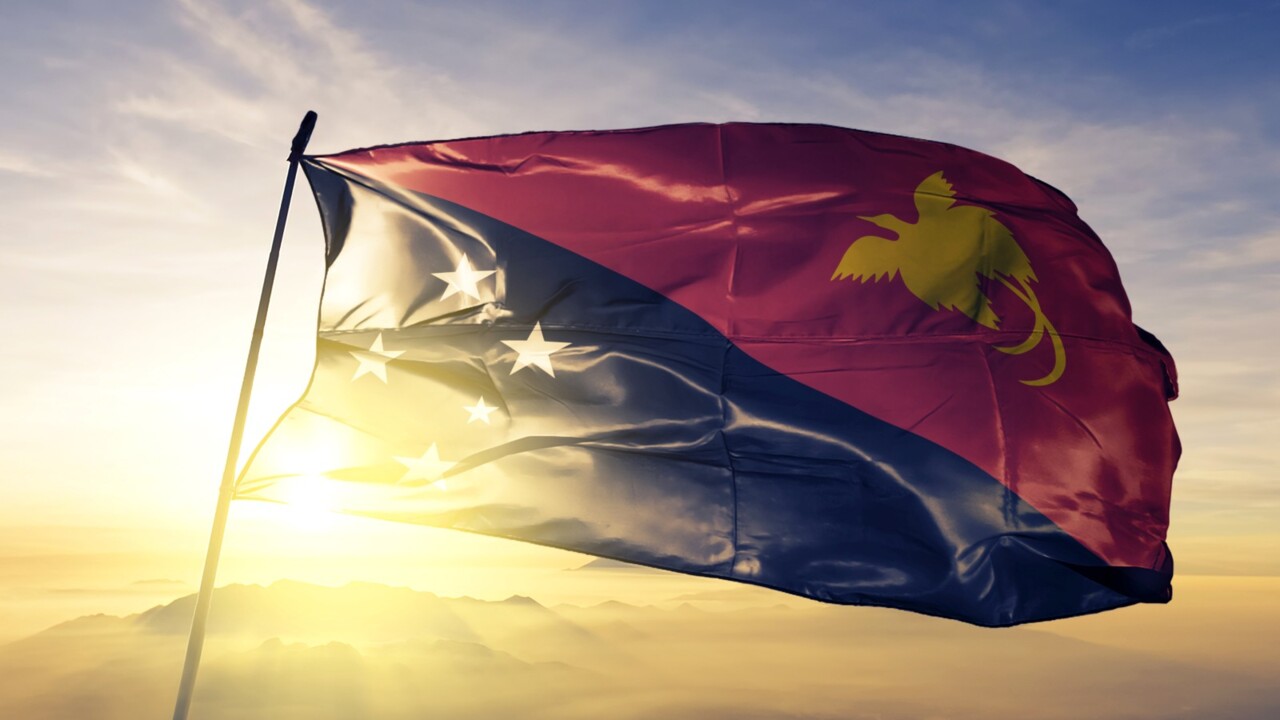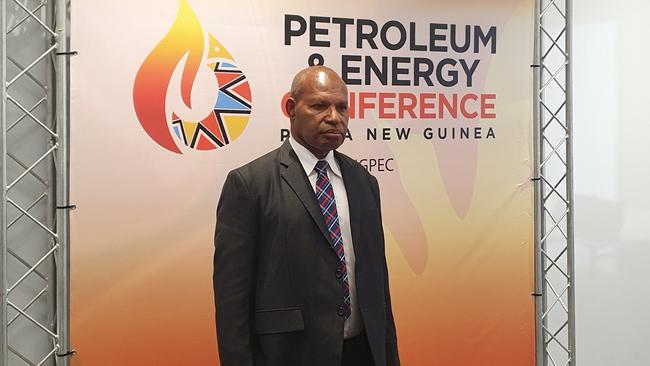Papua New Guinea minister Richard Maru wants investment to end rolling blackouts
Plagued by power cuts and sky-high energy prices, PNG’s trade and investment minister wants more foreign investment to create jobs and make the country competitive.

Business
Don't miss out on the headlines from Business. Followed categories will be added to My News.
Papua New Guinea’s government wants greater investment in newer and greener energy alternatives, including from Australia, to allow the country to reach its full potential and to compete on a global stage.
Australia’s closest neighbour currently has one of the highest rates of power outages in the world including in the capital Port Moresby, according to the World Bank. Along with the world’s highest power prices, outages are common because of insufficient funding and expensive means of power generation such as a reliance on diesel.
Papua New Guinea’s international trade and investment minister, Richard Maru, told The Australian he was embarrassed by increasing blackouts, adding that a country had no reason for that with plenty of means for greener energy sources such as solar.
“I’m from the East Sepik Provence and I don’t want to talk any investors into coming to the province because I can’t produce electricity for them,” he said on the sidelines of the PNG Petroleum and Energy Conference in Port Moresby.
“We are losing jobs, we’re losing forex, we’re losing tax, and we’re losing everything by not solving our country’s electricity problems.”
Mr Maru said the power outages were hurting business because PNG was relying on expensive fossil fuels, and the outages were preventing it from competing with neighbouring countries including Australia.
“We have a serious issue with energy and in supply in Papua New Guinea,” he said. “The current industry structure, which is riddled with debt, is not sustainable. No responsible government, no country should accept the current state of where we are today.”

Mr Maru has been in the country’s unicameral parliament since 2012 and is the leader of the People’s First Party, which has four seats. Political circles say he has ambitions to be the next leader of PNG.
He said PNG would never be able to export and produce more goods while power prices remained unaffordable.
“We can’t even produce tin fish in Papua New Guinea and get it down to Australia,” he said.
“The Thai companies take fish from PNG back to Thailand, process it and send it to Australia. They can do it for a quarter of the cost and one of the reasons I discovered why PNG can’t do it is because of the high cost of energy.”
Power prices in the country are on average slightly more than 61c per kilowatt hour, compared to 35c per kilowatt hour in Australia. The average salary in the country is almost a quarter of the standard wage in Australia.
The government wants more energy investment and believes Australia is well placed to play a part in the future of PNG.
“Australia knows this country better than anyone else,” Mr Maru said. “We are grateful that they want to invest in our country and we would encourage them to not only invest in our mining and petroleum but also in the energy sector.
“We are happy to talk about innovative solutions to make them come, especially in bigger projects like hydro that no Australian companies really invest in currently.”
Investment in clean and reliable energy by businesses would enable PNG to compete with Australia, China and other countries across the Asia-Pacific, Mr Maru said.
“I want to see a time where PNG is able to produce electricity and sell to consumers and industry at the same price as our competitors in Indonesia, Thailand and Australia,” he said.
“Our government is serious about looking for investors who are interested in investing in clean, reliable energy. We need to help industries, we need to create jobs, we need to be competitive with the rest of the world. And energy plays a very significant role in helping us to get there.”
Mr Maru urged delegates at the petroleum conference, including those from Santos, ExxonMobil and TotalEnergies, to look for solutions on how PNG could reform the energy industry and for it to come up with outcomes such as cheap, clean energy.
“We need good, practical solutions on how we can produce electricity, especially as cheap as we can, and also make it more reliable,” he said.
He said it should not be about looking after only one organisation, but also looking after industry and the needs of the country.
Australia, Japan, the US and New Zealand have committed more than $500m in the Papua New Guinea Electrification Partnership, focused on supporting PNG Power and providing consistent and reliable supply.
The reporter travelled as a guest of the PNG Petroleum and Energy Conference.
Originally published as Papua New Guinea minister Richard Maru wants investment to end rolling blackouts



